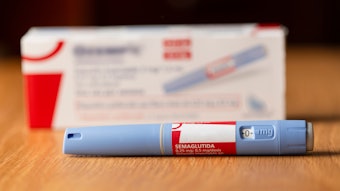
A recent study compared the use of two novel oral anticoagulants (Rivaroxaban, Bayer, and Apixaban, Pfizer) vs. low molecular weight heparin (LMWH) for preventing venous thromboembolism (VTE) after body contouring procedures.
Researchers performed a single-center, retrospective chart review of 1,572 patients who underwent surgical body contouring procedures from January 2012 to February 2015. Major complications associated with chemical prophylaxis were reviewed, including hematomas requiring surgical evacuation, acute blood loss anemia requiring transfusions, and thrombotic or hemorrhagic events.
Drug-related adverse events occurred in 1.27% (n = 20) of patients. The complications encountered by the 454 patients on LMWH consisted of 0.88% (n = 4) with hematomas requiring surgical evacuation, 0.44% (n = 2) with decreased hemoglobin requiring transfusions and 0.22% (n = 1) with a deep vein thrombosis (DVT). The complications encountered by 703 patients on Rivaroxaban consisted of 1.3% (n = 9) with hematomas requiring surgical evacuation, 0.43% (n = 3) with decreased hemoglobin requiring transfusions, and 0.1% (n = 1) with a DVT and pulmonary embolism. The complications encountered by 415 patients on with Apixaban consisted of 0.48% (n = 2) with a DVT.
The researchers concluded that the oral anticoagulants are comparable to LMWH for chemical prophylaxis after body contouring procedures, with similar rates of drug-related complications. “Further investigation is warranted with more clinical cases in order to recommend the use of this medication for routine postoperative chemical prophylaxis after body contouring procedures,” they wrote.
The study was published in the Aesthetic Surgery Journal (April 2016).
Photo copyright Getty Images.











